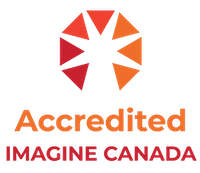The Vanier Institute speaks to issues as they affect and are affected by families from a perspective that embraces Canada’s diversity of families. Its understanding of family stresses the primary functions and activities of families, such as providing for the health and well-being of family members, raising children and sustaining the economy through the production, exchange and consumption of goods and services.
The Vanier Institute of the Family defines “family” as:
Any combination of two or more persons who are bound together over time by ties of mutual consent, birth and/or adoption or placement and who, together, assume responsibilities for variant combinations of some of the following:
- Physical maintenance and care of group members
- Addition of new members through procreation or adoption
- Socialization of children
- Social control of members
- Production, consumption, distribution of goods and services
- Affective nurturance – love
Our definition of family is deliberately broad to ensure that it captures all families and family experiences. It is a functional definition of family that focuses on relationships and roles – what families do, not what they look like.
Our definition is inclusive of diverse family structures including (but not limited to) single parents, same-sex couples, stepfamilies, married or common-law couples (with or without children), skip-generation families and more.
The definition includes at least one relationship between an adult and another person (adult or child) – a relationship over time, which signifies that a commitment has been made.
To learn more about the definition of family used by the Vanier Institute, see What’s in a Name? Defining Family in a Diverse Society by Alan Mirabelli
Our research program is guided by a set of understandings about family life that inform the development and publication of all research at the Institute.
- The Vanier Institute understands families as active agents of personal, social and cultural change. Context is important as noted below, but families – understood here to include individual members as well as the unit as a whole – have an active hand in charting their course.
- The Vanier Institute’s approach to families is inclusive and accepting of diversity. As Beryl Plumptre stated in 1972, “The Vanier Institute must be thoroughly in touch with family life of all kinds, not the ideal of the family, but the reality of the family as people live it.” Dimensions of diversity include socio-demographic differences (such as ethno-racial or Indigenous identity status, age, gender, sexual orientation, socio-economic status and family structure), geographic location, as well as differences in attitudes, values, health and subjective well-being of family members.
- The Vanier Institute brings a life course perspective to bear in the development of and interpretation of our research. This perspective highlights the change that Canadians and their families experience as they move through their lives, including key transitions such as relationship formation and dissolution, movement into and out of the paid labour market, and the evolution of caring responsibilities.
- The Vanier Institute is focused on making connections. In a world of change, the connections between family life and larger social, cultural, economic, political and demographic context matter. The Institute understands that Canada’s families do not exist in isolation but live in relationship with, and are influenced by, these varied contexts. Special attention will be paid to the resources available to families – within their kinship and social networks and within the broader community – and the government policies and programs that have a direct and indirect impact upon them.

